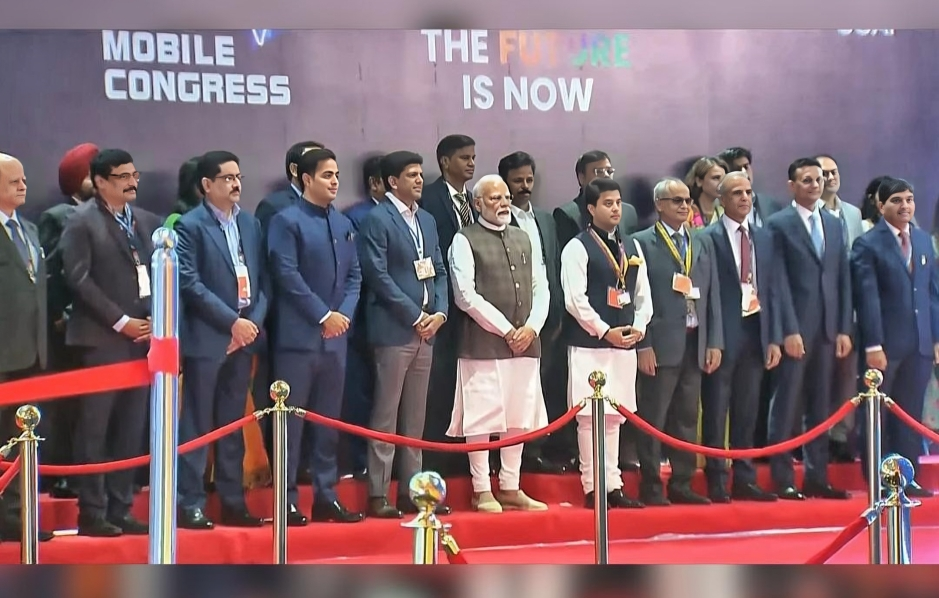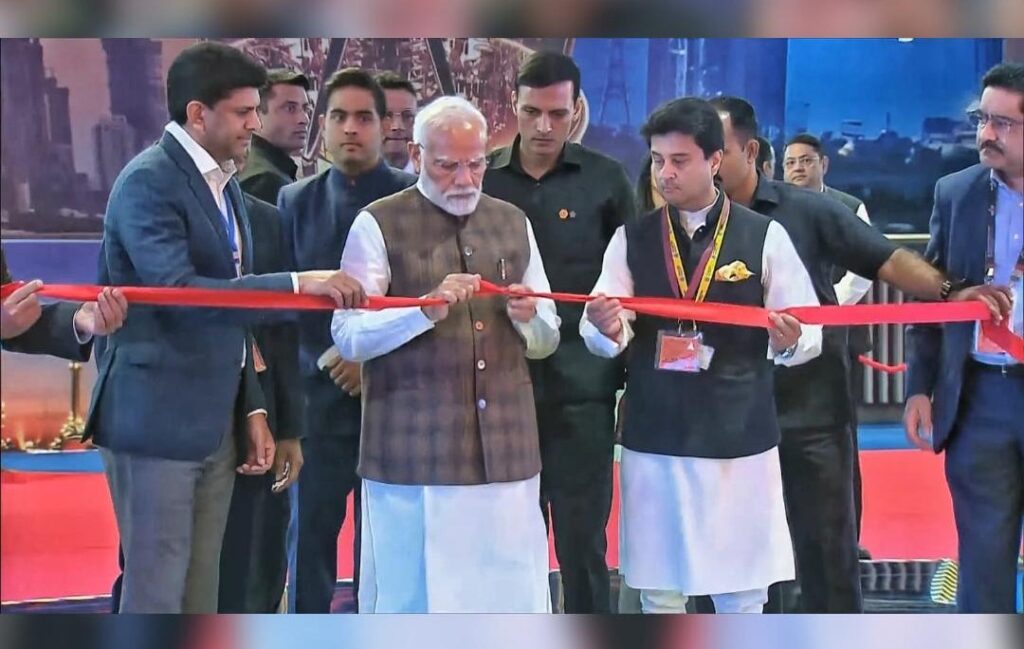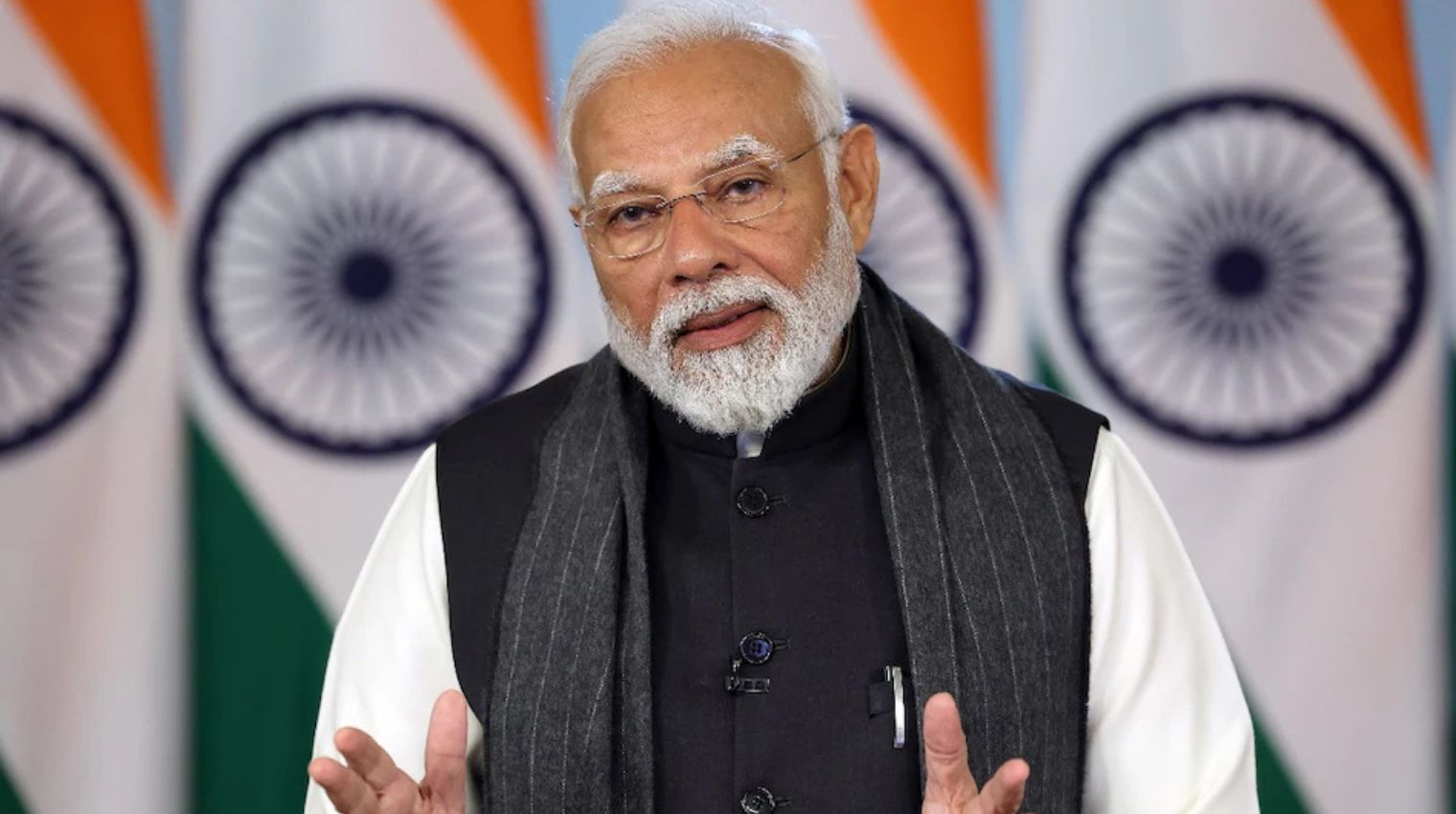Prime Minister Narendra Modi highlighted India’s digital transformation during his speech at the India Mobile Congress 2024, highlighting the nation’s goal to lead in technology innovation and promote global connectivity. With an emphasis on digital infrastructure and telecommunications, Prime Minister Modi emphasized how India’s mobile and digital revolution is not only changing the nation but also leading by example.
In his opening remarks, Prime Minister Modi emphasized the importance of the gathering of WT ASI and the India Mobile Congress. He made the observation that the India Mobile Congress supports the growth of connection services, whereas WT ASI concentrates on creating international standards. He said, “Today’s event combines these two, creating a platform that merges both standards and services,” stressing that India’s dedication to providing top-notch services and establishing its own international standards is further demonstrated by this partnership.
A Decade of Advancements in Digital Technology
Referencing his Digital India program, which was introduced a decade ago, PM Modi described India’s ambitious digital journey while reflecting on the past 10 years. The four pillars of the vision, according to him, are accessible data, universal digital connectivity, affordable gadgets, and a development strategy that prioritizes digital technology. The vision is based on holistic growth. PM Modi said, “We’ve worked on these four pillars simultaneously, and the results are evident.”

The mobile manufacturing industry in India is a prime example of this change. PM Modi stated that there are now over 200 mobile manufacturing units in the nation, up from just two in the beginning. “We went from being a major phone importer to a global exporter, producing six times more mobile phones domestically,” he said, pointing to this accomplishment as evidence of India’s increasing self-sufficiency. In addition to phones, PM Modi disclosed India’s large investments in semiconductor ecosystems, with the goal of allowing the nation to produce chips and entire gadgets.
Increasing National Connectivity
An essential element of India’s digital transformation continues to be connectivity. The government, according to PM Modi, has installed a massive optical fiber network that is so big it “could stretch between the Earth and the Moon eight times.” He emphasized how quickly 5G technology was adopted in India, where it was introduced just two years ago and is currently available in almost every district. He declared, “India is currently the second-largest 5G market globally,” highlighting the nation’s quick advancement in this field.

Given that India has among of the lowest data costs in the world, the prime minister emphasized the importance of inexpensive data. “In India, a gigabyte costs about 12 cents, but in many other countries, it costs ten or twenty times more,” he stated. He pointed out that Indians use about 30 GB of data per person each month and credited the success of India’s digital landscape to the availability of cheap data. He continued by saying that because of its affordability, people are starting to think more and more like digital natives. Public digital platforms like UPI and ONDC, which enable digital trade and transactions, are also a result of this.
A dedication to fairness and opportunity
While international telecom is sometimes seen as a service, PM Modi noted that India has transformed it into a means of opportunity and equity. He clarified, “Telecom in India is about bridging divides and creating opportunities; it’s not just about connectivity.” He went into detail on the ways that digital initiatives are assisting in closing the gap that exists between various economic groupings and rural and urban places. PM Modi said, “Every household, from border areas to remote villages, is now connected to new opportunities through technology.”

India’s digital infrastructure was very helpful during the pandemic. The government managed the immunization program, disseminated real-time directions, and provided financial assistance through digital platforms. According to PM Modi, India’s experience with digital government has greatly influenced the way it approaches welfare, allowing for the effective provision of services to millions of people. He emphasized that India shown its willingness to assist other countries in developing comparable systems by sharing its knowledge in digital public infrastructure with the world while serving as the G20 presidency.
Using Technology to Empower Women
PM Modi spoke at the event about India’s attempts to use technology to empower women, including the Bank Sakhis program, which encourages women to take the lead in digital banking at the local level, and Drone Didis, which promotes the use of drones in agriculture. He declared, “We see this reflected in various sectors—from space missions to STEM education—India is committed to inclusive technology that empowers women.” Women account for more than 40% of STEM students in India, according to PM Modi, and the number of female entrepreneurs in the nation’s startup scene is rising.
The prime minister emphasized that a key component of adopting technology must be inclusivity. “We are building an equitable, safe, and accessible digital ecosystem so that no one is left behind,” he declared. In addition, he brought up the Namoh Drone Didis initiative and other initiatives that enable women to assume leadership positions in the fields of technology and digital finance, thereby encouraging women in rural areas to start their own businesses and become financially independent.
An Appeal for International Digital Technology Standards
In addition, Prime Minister Modi argued for international organizations to give cyber security and data privacy top priority, as well as global governance and standards in digital technology. Like the international rules created for aviation, he argued, “it is time for a global framework for digital technology.” He suggested that organizations such as WT ASI adopt a proactive stance in creating these guidelines in order to guarantee a more secure and interconnected global community. “A single nation cannot defeat cyberthreats on its own. To safeguard our citizens, we must cooperate,” he said.
The Prime Minister emphasized India’s commitment to responsible technology use, pointing to the country’s National Cyber Security Strategy and Data Protection Act as proof of its commitment to a safe digital ecosystem. In particular, he urged other nations to create flexible and inclusive rules for data protection and ethical AI. “We are defining the direction of our collective future as we set these standards today,” he declared, promoting equity, security, and dignity in the digital era.
Moving Towards a Human-Centric Digital Revolution
PM Modi reaffirmed India’s objective of adopting a human-centric approach to technology, which places an emphasis on innovation combined with ethical considerations. He declared, “Our future should be both technically and morally sound.” He reiterated India’s resolve to make sure technology developments lead to a future that is more equitable, sustainable, and compassionate.
As he considered India’s achievements to date and its future prospects, Prime Minister Modi was upbeat about the contribution of technology to advancement on a worldwide scale. “In order to benefit every community, region, and nation in this digital age, we must strive for innovation with inclusivity,” he declared. In his farewell speech, he wished the WT ASI and the India Mobile Congress luck as they continue to promote connection and technology worldwide.


Leave a Reply